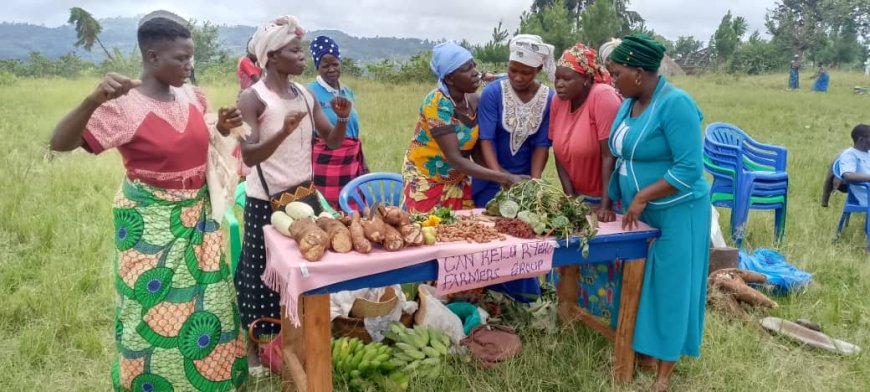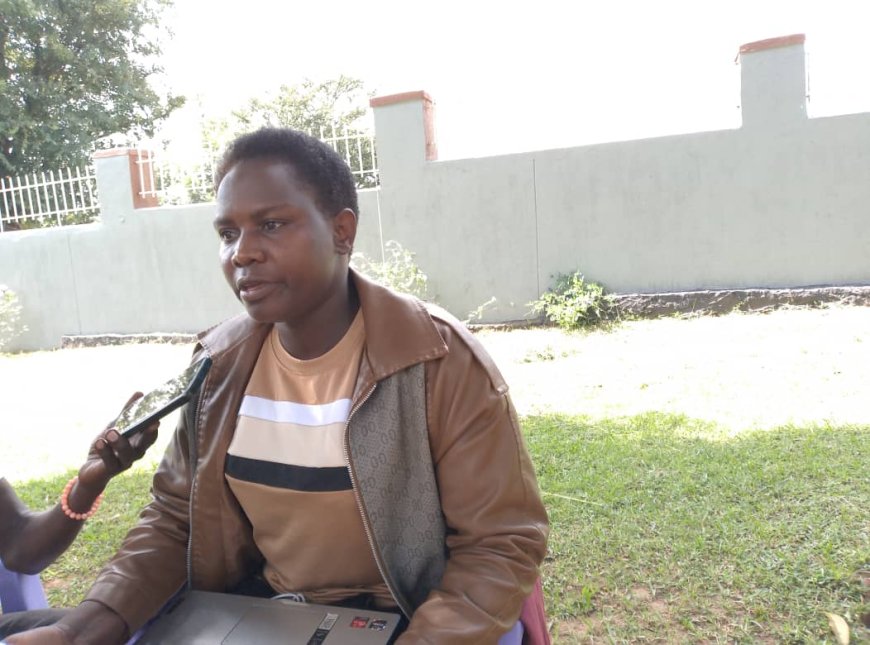How Caritas Nebbi Catholic Diocese championed organic farming among Farmers

By Mike Rwothomio
NEBBI, UGANDA: At least 750 farmers from various groups in the Dhew and Erussi Sub-counties of Nebbi District have shared their success stories stemming from the food and economic security project implemented by Caritas Nebbi Catholic Diocese.

Caritas has empowered these farmers and their communities through training in Agroecology, which integrates ecological principles into farming practices. This approach has enabled them to adapt agricultural methods to their local social, environmental, and economic contexts.
The three-year initiative, known as the "Food and Economic Security Project," has been funded by Bread for the World in Germany. It focused on educating farmers about Agroecology, organic farming, and climate-smart agriculture to address the impacts of climate change.
Moreen Wilembe, the field officer for the project in Erussi Sub-county, urged farmers to share the knowledge and skills they have gained with others outside their groups.
"We have 750 farmers in Dhew and Erussi Sub-counties who have undergone extensive training in Agroecology and organic farming. If you visit them, you will witness the tangible improvements in their practices," Wilembe stated in an interview with this publication on Wednesday, February 2, 2024.
She further advised, "As the project concludes this year, I encourage these farmers to continue the momentum by training other community members wherever they are."
The church-led initiative exemplifies how transitioning to sustainable food and farming practices can mitigate climate impacts while providing a nutritious diet for a growing population.
As part of the project, a two-day exhibition and training event focused on Agroecology and organic farming took place at the headquarters of Dhew and Erussi Sub-counties on October 1 and 2, respectively. Farmers from over 20 groups showcased a variety of crops, including maize, beans, sesame, and groundnuts, while also receiving training in Agroecology.
Under this project that is coming to unend this year , a sizable number of rural Farmers were taken for exposure visits to notable places like Masaka in Central Uganda, Adra In Madi-Okolo District and Shida Na Kazi Farm in Zombo amongst other places. This enabled farmers to interact with those from other regions and learn from each other, allowing them to view practical examples of successful integration of sustainable practices in farming communities.
Ronald Okweda, the agriculture officer for Dhew Sub county, admitted that " there is improvement in coffee production in the area due to effective training .
Cikawun Sakina From Pajur Parish, Erussi Sub-County said " Ever since Caritas came here in 2022, we were able to go to masaka and Adra to learn good farming practice, this has increased production and am able to pay all my four children in different schools"
Bill Clinton Mangala, from Dikiri Ene Tegu group in Padolo Parish said " we used to spray our crops any how but Caritas came in and trained us on how to use our indigenous leaves as pesticides.they also trained us on how to control soil erosion that is common in this hilly area"
Yahaya wod Nyapadolo from Pacaka Parish under Thwolo Cwiny group noted that, " they came in and donated indigenous and nutritious Irish potatoes breeds.we realized much sales from the varieties which we are still using"
The organization championed sustainable farming that works with nature, which is a truly sustainable alternative at local and Global stage according to local extension workers.
Stella Amony, the field officer for the project in Dhew Sub-County in an earlier interview with this Publication observed that " we still have people who have poor farming practices like bush burning, clearing bushes and massive cutting of trees to create expansive space for farming, blocking channels in valleys which is not environment- friendly"
Organic agriculture under it's principles sustain and enhance the health of soil, plant, animal, human and planet as one and indivisible,
It's is based on living ecological systems and cycles, build on relationships that ensure fairness with regard to the common environment and life opportunities and in a precautionary and responsible manner protect the health and well-being of current and future generations and the environment.
As the impactful " food and economic security project " come to unend this year, many farmers in an exclusive interview with this Publication requested for the extension of the project , that they say have brought a visible transformation in their life.



 Admin
Admin 







